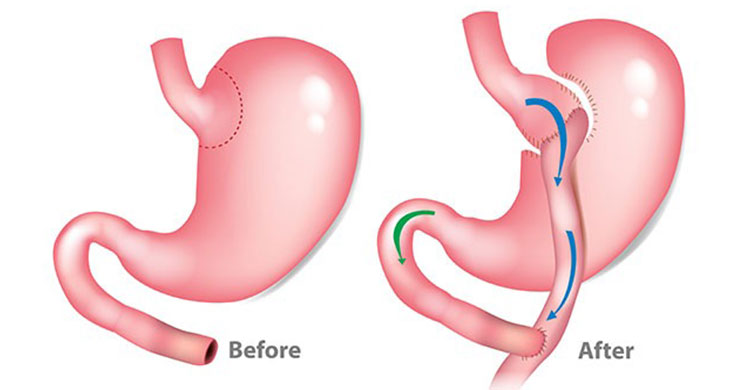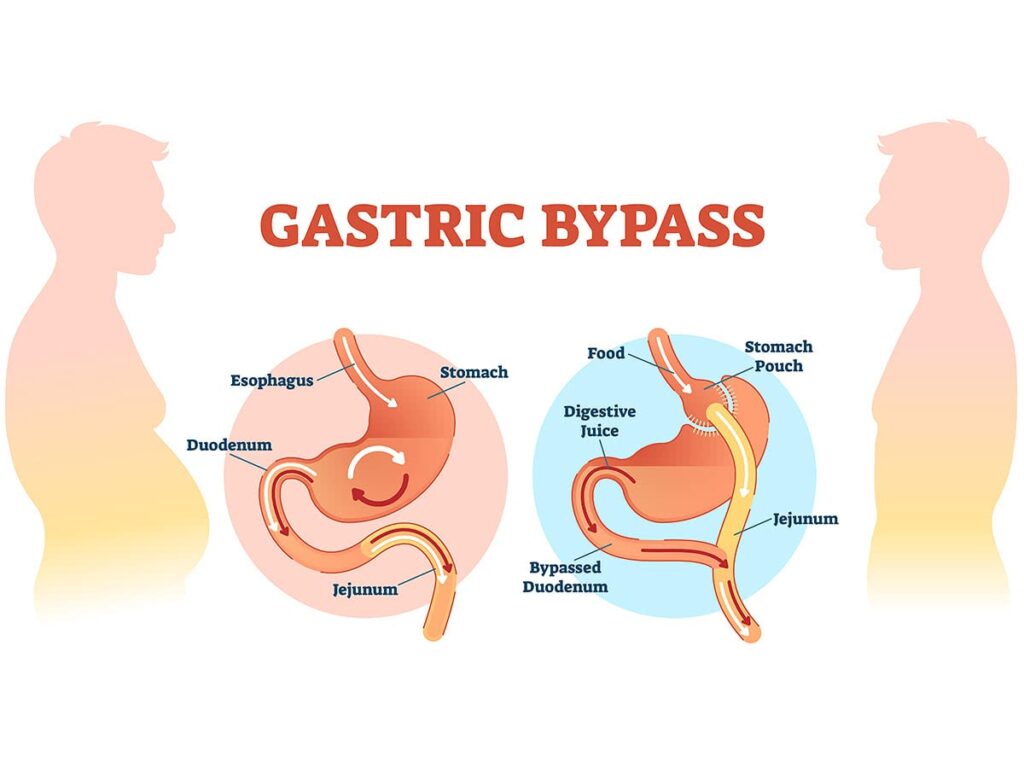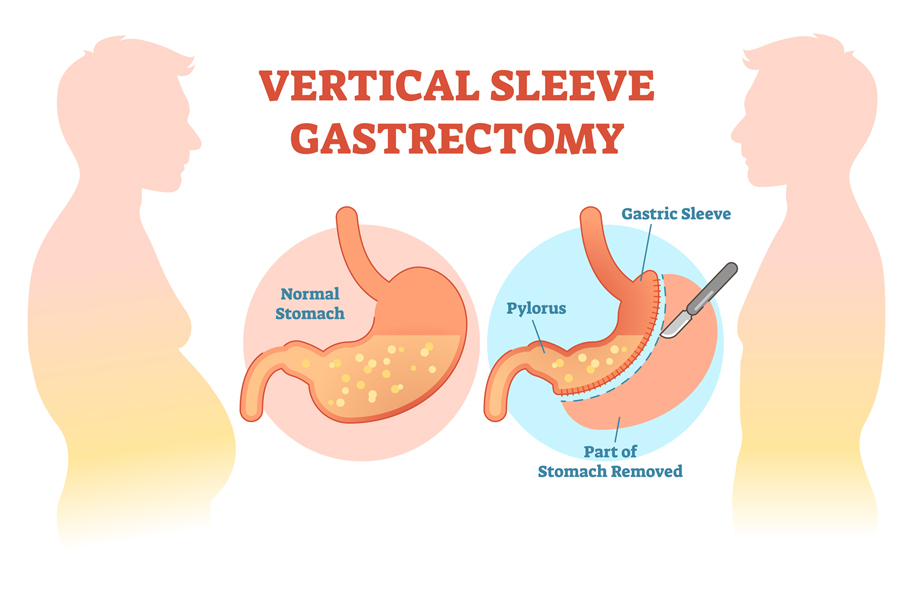Bariatric Surgery
- English
- Hindi
- Marathi

- List Item #3
- List Item #3
- List Item #3
- List Item #3
- List Item #3
Bariatric Surgery : Understanding Weight Loss Procedures and Options
Bariatric surgery is a type of weight loss surgery that involves a variety of procedures designed to help people lose weight and improve their overall health. There are several different types of bariatric surgery, each with its own set of benefits and risks. As a bariatric surgeon, I’m committed to helping my patients understand the options available to them and make informed decisions about their health.
What is Bariatric Surgery ?
Bariatric surgery is a surgical procedure that reduces the size of the stomach, limiting the amount of food that a person can eat. This reduction in stomach size leads to a decrease in caloric intake and can result in significant weight loss. Bariatric surgery is often recommended for people who are severely overweight and have not been able to lose weight through traditional methods like diet and exercise.
Types of Bariatric Surgery Procedures
There are several different types of bariatric surgery procedures available. Laparoscopic weight loss surgery is a minimally invasive procedure that uses small incisions to access the stomach. Gastric weight loss surgery is a more invasive procedure that involves making larger incisions in the abdomen. Some of the most common types of bariatric surgery include:
Gastric bypass surgery
Gastric bypass surgery is a weight loss procedure that involves creating a small stomach pouch and rerouting the digestive tract, resulting in reduced food intake and nutrient absorption. It’s often used for severe obesity or weight-related health issues.


Gastric sleeve surgery
Gastric sleeve surgery, also known as sleeve gastrectomy, involves removing a significant portion of the stomach to create a smaller, banana-shaped pouch. This procedure restricts food intake and can lead to weight loss by reducing hunger and altering digestive hormone levels.
Duodenal switch surgery
Duodenal switch surgery combines a partial gastrectomy with intestinal rerouting, aiming to promote weight loss by reducing stomach size and limiting nutrient absorption. It’s a complex procedure often reserved for individuals with extreme obesity or specific metabolic conditions.
Each of these procedures has its own benefits and risks, and the right option for you will depend on your individual health needs and goals.

What is the Bariatric Surgery Process ?
Who Can Perform Bariatric Surgery ?
What to Expect After Bariatric Surgery
After bariatric surgery, you will need to follow a strict diet and exercise plan to achieve the best possible results. You will also need to attend follow-up appointments with your bariatric surgeon to ensure that you are healing properly and to monitor your weight loss progress.
Bariatric surgery can be a life-changing procedure for people who are struggling with obesity. If you’re considering bariatric surgery, it’s important to work with a qualified bariatric surgeon who can help you understand your options and make the best decision for your health. Contact us today to learn more about bariatric surgery and the different procedures available.
Bariatric surgery can be a life-changing procedure for people who are struggling with obesity. If you’re considering bariatric surgery, it’s important to work with a qualified bariatric surgeon who can help you understand your options and make the best decision for your health. Contact us today to learn more about bariatric surgery and the different procedures available.
For who Bariatice Surgery is advised ?
The chances of weight regain after bariatric surgery vary but can occur due to factors like diet, physical activity, metabolism, psychology, medical conditions, and follow-up care. Sustainable lifestyle changes, regular medical follow-up, and a strong support system can help minimize the risk of weight regain.
Pregnancy is generally safe and possible after bariatric surgery, but it requires careful planning and monitoring. Consultation with healthcare providers is important to ensure proper nutrition, weight management, and prenatal care for a healthy pregnancy after bariatric surgery.
Yes, after bariatric surgery, maintaining a balanced and controlled diet is important for long-term success in weight management and overall health. Dietary adjustments and portion control are typically necessary to prevent weight regain and ensure nutritional needs are met.
Yes, some individuals may experience temporary hair loss after bariatric surgery. This condition, known as telogen effluvium, is usually caused by changes in nutrition and the body’s response to surgery-related stress. Hair loss is generally temporary and can be managed with proper nutrition and supplements as recommended by healthcare professionals.
Plastic surgery is not always required after bariatric surgery. It depends on factors such as the amount of weight loss, individual preferences, and aesthetic concerns. Some individuals may choose to undergo plastic surgery to address excess skin and body contouring, but it’s a personal decision and not a necessity for everyone who undergoes bariatric surgery.
The timing for starting exercise after bariatric surgery varies. Generally, light activities like walking can begin soon after surgery. More strenuous exercise usually starts a few weeks to a couple of months post-surgery, after clearance from your healthcare provider.
Yes, following a pre-surgery diet is often important. It can help reduce liver size, improve surgical outcomes, and prepare the body for the procedure. Your healthcare team will provide specific guidelines.
Bariatric surgery can have a positive impact on diabetes. It often leads to improved blood sugar control and sometimes even remission of type 2 diabetes due to weight loss and metabolic changes.
Weight loss occurs primarily through reduced food intake and nutrient absorption. The surgery changes the stomach’s size or the way food is digested, leading to lower calorie intake. Fat is not directly removed; rather, the surgery helps individuals eat less and lose weight over time.
Lorem ipsum dolor sit amet, consectetur adipiscing elit. Ut elit tellus, luctus nec ullamcorper mattis, pulvinar dapibus leo.
Lorem ipsum dolor sit amet, consectetur adipiscing elit. Ut elit tellus, luctus nec ullamcorper mattis, pulvinar dapibus leo.
